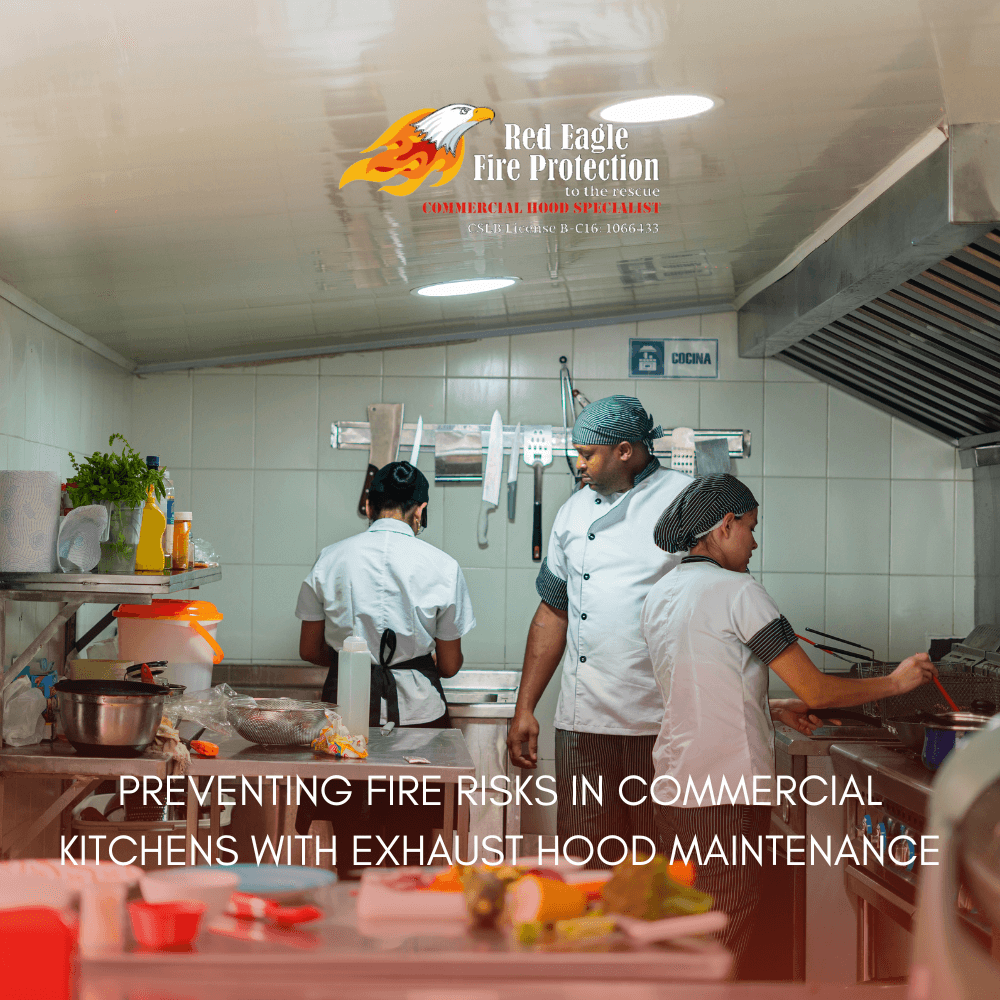In commercial kitchens, ensuring safety is crucial, and one of the most effective ways to mitigate fire risks is through regular kitchen exhaust hood maintenance. Exhaust hoods play a vital role in removing grease, heat, and smoke, all of which contribute to fire hazards if not properly managed. This article explores how routine maintenance helps prevent fires and keeps your kitchen safe.
1. Controlling Grease Buildup
Grease buildup is one of the leading causes of fires in commercial kitchens. As grease particles accumulate in the exhaust hood, filters, and ducts, they become highly flammable. A small spark from the cooking equipment can ignite the grease, causing a dangerous kitchen fire. Regular kitchen exhaust hood maintenance is essential to avoid this risk.
Why Regular Cleaning Is Important
During routine maintenance, professionals thoroughly clean the hood, filters, and ducts, removing grease and reducing fire hazards. By eliminating grease buildup, your kitchen becomes safer and more compliant with fire safety standards. Consistent maintenance keeps the system free of potential fire hazards, protecting both your staff and equipment.
2. Ensuring Proper Airflow
A key function of the exhaust hood system is to maintain proper airflow by venting heat, smoke, and grease-laden vapors out of the kitchen. When the filters or ducts become clogged with grease and debris, airflow is restricted, causing heat to build up, which increases the risk of fire.
Maintaining Ventilation Efficiency
Regular kitchen exhaust hood maintenance ensures that airflow remains unobstructed. Clean filters and ducts allow the system to ventilate properly, keeping the kitchen cool and reducing the chance of overheating. Efficient ventilation plays a significant role in minimizing fire risks in busy commercial kitchens.
3. Identifying Mechanical Issues Early
Mechanical components like fan motors and belts are crucial for the exhaust system to function properly. Over time, these components can wear out, causing the system to become inefficient. If a fan stops working, heat and grease can quickly build up, leading to an increased risk of fire.
Preventing System Failures
Routine kitchen exhaust hood maintenance includes inspections of mechanical parts to ensure they are in good condition. Technicians can identify and repair any issues before they escalate, preventing system failures that could lead to fire hazards. Keeping these components in top shape ensures your kitchen operates safely and smoothly.
4. Staying Compliant with Fire Safety Codes
Commercial kitchens must adhere to local fire safety regulations, which often include mandatory exhaust hood maintenance. Failure to comply with these regulations can result in fines, business closures, or increased fire risks. By scheduling regular kitchen exhaust hood maintenance, you stay compliant with fire codes and protect your kitchen from potential dangers.
Maintaining Legal Compliance
Consistent maintenance not only keeps your kitchen safe but also ensures that you meet legal requirements for fire safety. Routine maintenance helps you avoid costly fines and ensures your business can operate without the threat of fire-related shutdowns.
Conclusion
Regular kitchen exhaust hood maintenance is essential for preventing fire risks in commercial kitchens. By controlling grease buildup, ensuring proper airflow, addressing mechanical issues, and staying compliant with safety regulations, routine maintenance significantly reduces fire hazards. Investing in regular upkeep keeps your kitchen safe, efficient, and fire-free.
READ MORE:
How Routine Exhaust Hood Maintenance Keeps Your Kitchen Safe from Fire Hazards

